
IRIS login | Reed College home Volume 96, No. 2: June 2017
CSO trading cards - Collect ’em all!
Beat it, Babe Ruth. Pick up your deck, Pikachu. Move over, Magic: the Gathering. A new medium of rectangular exchange is about to hit campus—Community Safety Trading Cards.
Starting Friday, Community Safety Officers (CSOs) will carry trading cards as they make their rounds, handing them out to students as a way to build relationships. “As a team, we talked over the summer about what we wanted to accomplish this year, and our first priority is to develop relationships with individual students,” says Gary Granger, director of Reed’s office of community safety. “We hit on the cards as a fun way for CSOs to establish a personal connection.”
Each trading card includes a photo and a handful of fun facts about a CSO, from hobbies to favorite epic poems to potential superpowers (“atmokinesis” is one.) “The CSOs choose their own pictures,” says Granger. “And they decide who and when to give them out.”
Continue reading CSO trading cards - Collect ’em all!
So, What is Title IX, Anyway?
Title IX of the Education Amendments of 1972 (which amends the Civil Rights Act of 1964) protects people in education programs or activities that receive Federal financial assistance from discrimination based on sex. Title IX states that, “No person shall, on the basis of sex, be excluded from participation in, be denied the benefits of, or be subjected to discrimination under any education program or activity receiving federal financial assistance.”
The spirit of Title IX is to ensure gender equity and equal opportunity for all students, and as such Reed is committed to honoring its obligations under Title IX.
“The law comes from a spirit of fairness,” said Michelle Valintis, Reed director of human resources. “It exists to guide colleges to become more open, safe, and inclusive places to learn.”
Though much of the early press around Title IX was centered on balancing athletic opportunities and scholarships, it was intended to be more far reaching. In 2011 Vice President Biden sent a “Dear Colleague” letter to all educational institutions receiving federal financial aid that explained the expanded interpretation of Title IX enforcement to cover issues of sexual harassment and assault. The letter instructed colleges to do what is necessary in order to ensure a safe and supportive environment for every student. Additionally, colleges were instructed to
• disseminate a notice of nondiscrimination to students, parents, and employees;
• designate a Title IX coordinator—at Reed it is Ed McFarlane, vice president/treasurer;
• adopt and publish grievance procedures providing for prompt and equitable resolution of student and employee sex discrimination complaints.
“The national statistics describing how few survivors of sexual harassment and assault report to authorities are truly discouraging,” said Mike Brody vice president and dean of students. “I believe that it’s incumbent upon college leaders—students, faculty, and staff—to help create an environment in which people feel safe to report, and can be confident that the college will respond in a meaningful and effective way. It is of course our ultimate goal to eliminate sexual assault and harassment though our education and preventions efforts, but in the meantime, Reed remains committed to removing obstacles that might prevent people from reporting.”
Title IX complaints can be filed with Department of Justice Office of Civil Rights, or with the institution where the alleged offence took place. It is the institution’s obligation to swiftly respond to any Title IX complaint by conducting an investigation and taking appropriate remedial action. If an offense is found, either the institution’s administration can take action to remediate the situation, or it can refer the case to the appropriate internal adjudicating body. If the latter option is taken, the Title IX coordinator oversees the process to ensure compliance.
Continue reading So, What is Title IX, Anyway?
Jamie Isenstein ’98: The Lady Returns
Jamie Isenstein ’98, last seen on campus in 2011, inhabiting an armchair (The Lady Vanishes) returns to the Cooley Gallery for a public reception, beginning at 6 p.m. on Thursday, September 19, 2013. This mid-career survey is curated by gallery director Stephanie Snyder ’91, who admires Jamie's drawings, mixed-media sculptures, and installations as pieces that "engage the artist’s body as an artistic medium—a subject of humor, theatricality, and historical representation." A studio art major at Reed, Jamie became intrigued with Northern Renaissance art and considers her own work to be an update on many of the themes popular then, such as the Vanitas and Momento Mori. At Art Basel in 2011, she staged an "anti-concert" in which she spent two weeks weaving a rug onto a harp, compromising its strings and thereby removing music (dampening sound) vs. making music (video). You can see her at her harp once again on Thursday evening.
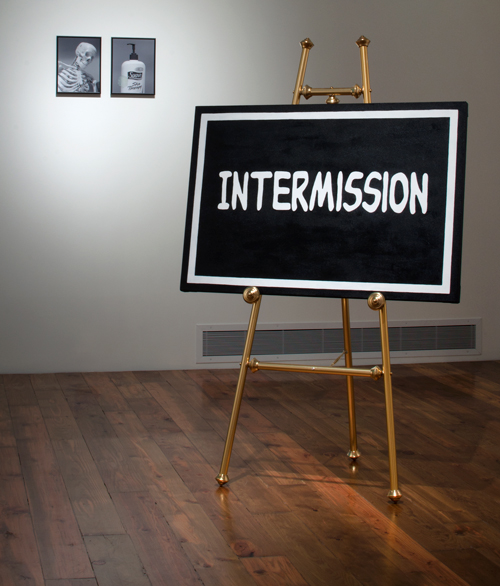 In an essay for the catalog of the exhibition, Jamie Isenstein: Will Return, Graham Jones ’97, MIT anthropologist and an expert on the subculture of entertainment magic, suggests that the magician's craft relies upon an audience that is aware of the deception and desiring of it. He has great appreciation for the ways in which Jamie uses her half-hidden body to evoke curiosity and desire; she is gently teasing her audience with the deferred possibility of interaction, which is in itself the physical manifestation of her "intermission" and "will return" conceits. Just as she provokes a kind of awe when confined to motionless poses, we are forced to pause and consider new ways of perceiving art in spite of our own constraints.
In an essay for the catalog of the exhibition, Jamie Isenstein: Will Return, Graham Jones ’97, MIT anthropologist and an expert on the subculture of entertainment magic, suggests that the magician's craft relies upon an audience that is aware of the deception and desiring of it. He has great appreciation for the ways in which Jamie uses her half-hidden body to evoke curiosity and desire; she is gently teasing her audience with the deferred possibility of interaction, which is in itself the physical manifestation of her "intermission" and "will return" conceits. Just as she provokes a kind of awe when confined to motionless poses, we are forced to pause and consider new ways of perceiving art in spite of our own constraints.
Continue reading Jamie Isenstein ’98: The Lady Returns
"Star" Graces Performing Arts Building
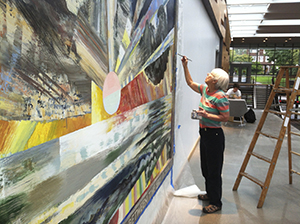
Reed has received a grant of $28,000 to acquire the painting Our Solo Round Star Squeezed Between the Sky & Sea by celebrated Portland artist and Reed College alumna Lucinda Parker ’66. This acquisition was made possible with the assistance of the Ford Family Foundation through a special grant program managed by the Oregon Arts Commission (OAC). “The college is thrilled to acquire such a substantial work of art by a distinguished alumna during an era of profound growth and innovation in the arts at Reed," says Cooley Gallery director Stephanie Snyder ’91. "Lucinda Parker is a visionary painter, and an integral part of the Reed community. Her work chronicles the living history and vitality of the Northwest with unmatched vibrancy.”
Our Solo Round Star Squeezed Between the Sky & Sea, completed this year, is a monumental acrylic on canvas painting, measuring 91 x 153 inches. Its particular subject matter and the circumstances of its creation are unique within the artist’s oeuvre. Parker created the work while an inaugural artist-in-residence at the Robert Rauschenberg Foundation Residency Program at the late artist’s Florida studio complex. During the residency, Parker spent an entire month observing and making small gouache studies of the sunset. Concurrently, she began working on this encompassing vision of natural rhythm and spiritual transformation. In her words: “The painting explores death and renewal—the mystery of where the sun goes when it disappears into the ocean—old myths.”
Lucinda Parker is one of the Pacific Northwest’s most significant and enduring painters. She is associate professor in painting and drawing, emerita, at the Pacific Northwest College of Art, where she studied fine arts in a dual-degree program with Reed, and an MFA graduate of the Pratt Institute. Her work has been shown at numerous institutions, including the Portland Art Museum, the Jordan Schnitzer Museum of Art, the Seattle Art Museum, and Marylhurst University. Her work is represented by the Laura Russo Gallery in Portland.
Continue reading "Star" Graces Performing Arts Building
History major wins US State Dept. scholarship
Congratulations to history major Christian Acuña ’14, who won a spot in the U.S. State Department’s prestigious Critical Language Scholarship program last summer, spending eight weeks studying Korean at Yonsei University Wonju Campus in South Korea.
Around 610 U.S. undergraduate and graduate students were selected to participate in the program. Each participant spends seven to ten weeks in the country whose language they are studying enrolled in intensive language courses and taking advantage of the culturally enriching experiences the CLS program offers. For Christian, such excursions included a Korean archery lesson, a traditional wedding ceremony with tea tasting, and a Taekwondo lesson. Scholarships are offered in thirteen languages: Arabic, Azerbaijani, Bangla, Chinese, Hindi, Indonesian, Japanese, Korean, Persian, Punjabi, Russian, Turkish, and Urdu.
Christian went into the program never having spoken a word of Korean and considers the program to be an effective and comprehensive way to learn a language without prior experience. For him, the most rewarding part of the experience was the weekly volunteer work at a local orphanage. He was grateful for this opportunity because it gave him a chance to give back to a community that was welcoming to him. For the first week of the program, he stayed with a Korean host family and in the weeks following continued to visit them on weekends for dinner.
Continue reading History major wins US State Dept. scholarship
Sketching Infinity
The universe of Vance Feldman ’05 explodes with jumbled houses, bridges and aqueducts, businessmen shaking hands, dolphins jumping out of rivers, and spacemen kicking their feet back in lawn chairs. To call his work monumental would be something of an understatement. Modestly titled the ForeverScape, his drawing rivals some of the longest art pieces in the world. Spanning roughly 650 feet from left to right—the equivalent of two football fields—the ForeverScape is assembled out of 700 sheets of letter-size paper and grows longer by the day.
The ForeverScape started in September, 2009, when Vance was in between jobs and found himself sitting in a bar with a ream of paper. He started aimlessly sketching a landscape and when the first page ended saw no reason to stop. The first couple hundred pages, drawn in ballpoint pen, feature a smoggy, industrial landscape littered with crowded buildings twisting into each other and spilling onto the road and barbed wire fences about to snag innocent hummingbirds. These give way to apocalyptic scenes of civilization being swallowed by the sea. Squid and clownfish lazily swim above a submerged city whose buildings are wreathed in slimy weeds and whose skyscrapers are tickling the belly of a whale. One scene depicts several men attempting to subdue and photograph what appears to be the Loch Ness monster. Later, after Vance switched to using a Sharpie, the sea becomes the sky and we zoom into a psychedelic rendition of outer space, filled with boats and clams and astronauts playing badminton in reclining lawn chairs.
The chairs pay homage to Prof. Michael Knutson [art 1982–], who once told Vance that all he painted for several years were lawn chairs. Prof. Knutson likes the piece so much that he shows it to his art classes every year. The ForeverScape demonstrates, he says, “an incredible imagination, focus and energy.” In a subtler way, it also evokes a childhood loss and a lesson Vance learned at Reed.
Continue reading Sketching Infinity
Reed and the Rankings Game
The Atlantic published a great article today about the hollowness of the college rankings compiled by US News and World Report. Written by retired Boston College professor John Tierney, the piece highlights the problems that plague the US News system—dubious data, arbitrary rules, and a one-size-fits-all approach, to name a few.
Of course, these were the same problems that persuaded Reed’s then-president Steve Koblik to pull out of the USN rankings back in 1995. It’s a shame to see that matters haven’t gotten much better.
Reed still doesn’t participate in USN, although the magazine insists on ranking us anyway. Which is too bad—as Tierney points out, the USN system remains surprisingly popular, despite an unrelenting stream of criticism through the decades. On the other hand, the last several years have witnessed the rise of more comprehensive alternatives. Perhaps one day they'll supplant the USN juggernaut. In the meantime, USN has released its latest report. Like Tierney, I’ll probably peek at the rankings, but—as they say in the ads for the Oregon lottery—for entertainment purposes only.
Continue reading Reed and the Rankings Game
Reed Welcomes New Profs
Reed College is pleased to welcome 19 new and visiting faculty members, including three alumni.

Rebecca LaLonde ’01 returns to campus as an assistant professor of chemistry. After earning her BA in chemistry at Reed, she obtained a MS in chemistry from Stanford and a PhD in chemistry from UC Berkeley. She has worked as an associate scientist at Dow Chemical and as a research associate in medicinal chemistry at Genetech.
Continue reading Reed Welcomes New Profs
Time-Travel Expert to Give Talk Yesterday
Renowned physicist Dr. Kip Thorne will give a lecture at Reed on “The Warped Side of Our Universe: From the Big Bang to Black Holes and Gravitational Waves” on Tuesday, August 27, 2013—which may be tomorrow, today, or yesterday, depending on your frame of reference.
Dr. Thorne, a retired professor of theoretical physics at California Institute of Technology, is one of the world’s leading experts on gravitational waves, black holes, and wormholes—hypothetical “shortcuts” in the space-time continuum that give rise to the theoretical possibility of time travel.
Dr. Thorne is on campus to receive the 2013 Howard Vollum Award for Distinguished Accomplishment in Science and Technology. The award was created as a tribute to the late Howard Vollum ’36, a Reed trustee, and a lifelong friend of the college.
Continue reading Time-Travel Expert to Give Talk Yesterday
Psych major wins Fulbright
Margaret Balk ’13 has won a Fulbright grant to do research at the Université Catholique de Louvain in Belgium. She will collaborate with Professor Olivier Luminet, examining how emotional competence affects the quality of life in children with Type I diabetes.
Emotional competence refers to the ability to pay attention to one’s bodily sensations, confront one’s emotions, and communicate them to others. Quality of life can be measured by how much the illness limits activity, the frequency or severity of the physical symptoms, and to what extent the disease causes negative emotions.
Luminet’s findings show that Type I diabetic children with lower emotional competence have worse glycemic control, which is an objective measure of patients’ management of their diabetes.
Continue reading Psych major wins Fulbright
Reedies Nab NSF Fellowships
Margit Bowler ’11, Quinn Langdon ’11, and Christina Porter ’13 all won fellowships from the National Science Foundation this year as part of the NSF’s prestigious Graduate Research Fellowships Program.
The program grants each fellow $32,000 a year for three years to pursue a specific research proposal, plus $12,000 a year to the individual's institution. Students may apply to the program their senior year or during their first two years of graduate school.
Margit Bowler ’11 will do fieldwork in the language of Warlpiri, spoken solely by approximately 3,000 indigenous people in central Australia. Her project represents a continuation of the research she began thanks to a Fulbright Scholarship she won in 2011; she is thankful to NSF for the opportunity to continue her research, as she believes Warlpiri should not be studied without a longterm commitment to its speakers and their communities. She is currently at UCLA researching Warlpiri semantics and syntax although she occasionally delves into Warlpiri phonology.
Continue reading Reedies Nab NSF Fellowships
Steve Jobs and Reed
As everyone knows, Steve Jobs did not graduate from Reed College. (He may, in fact, be one of the most famous “non-graduates” in modern history). Nonetheless, his experience at Reed left a profound impression on him, as he reiterated on many occasions.
This week, the biopic Jobs, starring Ashton Kutcher as Steve Jobs (and James Woods as Dean Jack Dudman ’42), is being released to theaters around the world. In light of the enduring fascination with all things Steve, we decided to pull together some information about his time on campus. Visit our page on Steve Jobs at Reed for more details.
Continue reading Steve Jobs and Reed
Prodigal Son
Visionary. Iconoclast. Rebel. Even though Steve Jobs was officially enrolled for just one semester, he was the quintessential Reedie.
It is far beyond the scope of this obituary to trace his protean career at Apple or assess his accomplishments and failures (and there were many of each). Classmates hardly need to be reminded of how he transformed the personal computer, the cell phone, and the music player, and how those devices in turn revolutionized a dozen industries.
But it is worth taking a closer look at Steve’s time on campus, because Reed was a much deeper part of him than one might think from his official transcript. In his crystalline intensity, his obsession with big ideas, his hunger for perfection, he personified the classic Reed archetype.
Continue reading Prodigal Son
Steve and the Owl
In the winter of 1996–97, a band of Reed students including Justin Campbell ’99 and Colin McCluney ’99 took the Doyle Owl on a road trip to California. On a whim, they stopped by Steve Jobs' house in Palo Alto and rang the bell. They were floored when Steve emerged, admired the Owl, talked about Reed, and posed for this photo in Justin’s parents’ minivan. “He was really nice about it,” Justin says.
Continue reading Steve and the Owl
The Dudman Files
Prof. Jack Dudman ’42 played many roles at Reed—often simultaneously. Student leader, proud graduate, inspiring teacher, patient mentor. But he is probably best remembered as dean of students, an office he held from 1963 to 1983—during which time he helped hundreds of students through some of the most difficult times of their lives.
John Almon Dudman was born in Iowa in 1920 and majored in mathematics at Reed, where he made a deep impression on Prof. Robert Rosenbaum [math 1939–53]. “Jack was the best of the group,” Rosenbaum wrote later. “Not just in seriousness and diligence, although he clearly held his own in these qualities—but in the imagination that he brought to his study, and in the evident pleasure that he took from beginning to see the roles that mathematics plays in human culture.”
Dudman was elected student body president and became an active student advocate. During that time, two male students were involved in a homosexual relationship which somehow became public; college administrators were determined to put an end to it. Dudman argued that the students’ relationship was a private matter and that the college had no business meddling in their affairs. Sadly, his arguments fell on deaf ears and the students were expelled.
Continue reading The Dudman Files
Staying Hungry
(From Steve Jobs' Convocation speech on August 27, 1991, at which he was given the Vollum Award for Distinguished Accomplishment in Science and Technology.)
Thank you very much for this. It means a lot to me. I’m a peculiar Reed alumnus, as many of you know. I never graduated from Reed—although that doesn’t make that unusual, I suppose.
But maybe more unusual: I ran out of money after one semester here at Reed, so I dropped out, but then I dropped in for another year-and-a-half. So, I was actually here by choice. This is somewhat more unusual. And I had some experiences here that I’m sure many of you will have as freshmen and throughout your years here, that have stayed with me my whole life. I was thinking of some of them to recount to you.
Continue reading Staying Hungry
Reed's Oral History Project Wins Honors
Reedies have known for some time that Comrades of the Quest is a signal achievement. Since its publication last summer, the magisterial oral history of Reed, edited by John Sheehy ’82, has been devoured by Reedies on campus and elsewhere (check out these tidbits that were excerpted in Reed magazine). The book quickly became an invaluable tool for alumni to understand their school and their role in its history. Lately, however, Comrades and the Oral History Project—which produced the enormous treasure trove of interviews which are the basis for the book—have received recognition in the wider world as extraordinary works of scholarship.
The Oral History Association has just named the Reed College Oral History Project as the recipient of its prestigious Elizabeth Mason Large Project Award, given for outstanding works of oral history. The awards committee found that the project had been completed at “consistently high standards of professionalism, ethics, and scholarly rigor,” and that it made “important contributions to the social and cultural history of education.”
Continue reading Reed's Oral History Project Wins Honors
Memorial for Ted Reich ’51 set for Aug. 22
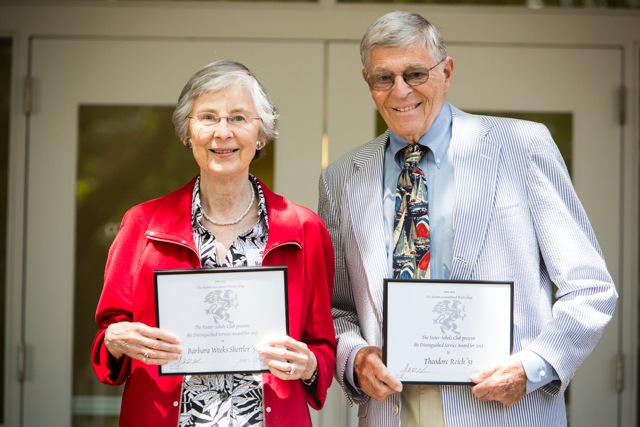
A celebration of the life of longstanding Reed trustee Ted Reich ’51 will be held at the Portland Yacht Club, 2–5 p.m., on Thursday, August 22, 2013.
Classic car enthusiast, sailor, mountaineer, investor, and philanthropist, Ted was one of the world’s foremost authorities on Rolls-Royce and Bentley motorcars. His fascination with automobiles began in early childhood. His father, a surgeon in Cleveland, Ohio, taught Ted to appreciate the design and details of fine motorcars, and Ted was enthralled when his cousin from England arrived at the Reich home in a Bentley. “By the time I was four, I could tell a Duesenberg from a Cadillac.”
Ted came to Portland to attend Reed, where he earned a BA in psychology. “I viewed my years at Reed as positive in virtually all respects,” he said later. A competitive athlete in high school, Ted loved mountain climbing and skiing in the Pacific Northwest. He hiked to the summits of the Cascade Range, and climbed Mount Hood seven times. On his twenty-first birthday, he climbed the Matterhorn in Switzerland. At Reed, he joined the Boar’s Head Ensemble, and faithfully sang at the annual holiday party for 65 years.
Continue reading Memorial for Ted Reich ’51 set for Aug. 22
Reed College Ranked #1 in Best Classroom Experience
The 2014 edition of Princeton Review’s The Best 378 Colleges reveals a Reed that is both familiar to Reedies and one that exists somewhere on a plane between Reedlore and reality.
Reed was #1 in the category of “Best Classroom Experience,” #2 in “Professors with the Highest Marks,” #4 in “Students Who Study the Most,” and #19 in the categories of “Great Financial Aid” and “Most Accessible Professors.”
Kim Durkin ’13 commented on the outmoded stereotype where Reed landed at #4 in the category, “Birkenstock-Wearing, Tree-Hugging, Clove-Smoking Vegetarians.” “Is this 1980? There are plenty of vegetarians, and we do love our trees (the college has a website dedicated to them), but that’s not the picture I get when I think of Reed.”
Continue reading Reed College Ranked #1 in Best Classroom Experience
Reed Switchboard Selected from 400 Applicants for $20K Slice of PIE
Reed Switchboard, the networking site created to share Reed love, has been given a boost by Wieden & Kennedy as part of the ad firm’s Portland Incubator Experiment (PIE). Switchboard is the networking brainchild of Mara Zepeda ’02 and Sean Lerner ’10. They created the website so current Reedies and alumni could share their work experiences, offer assistance, post jobs, and give community members a leg up in a post-recession and increasingly competitive job market.
PIE had an ultra-competitive selection process, with only seven tech start-ups picked out of over 400 applicants. Switchboard, a Reedie endeavor, manned by Reedies, and beta tested on Reedies, was one of the lucky seven. Each startup receives $20,000 in seed money, office space at Wieden & Kennedy, and three months of hands on mentorship from past PIE winners and other successful technological ventures.
Mara and Sean are hoping to use the money and expertise they gain through PIE to open up Switchboard to other college communities, offering the same basic format that connects Reedies with Reedies, but instead connecting Clarkies with Clarkies, and so on.
Continue reading Reed Switchboard Selected from 400 Applicants for $20K Slice of PIE
< Prev 1 2 3 4 5 6 7 8 9 10 11 12 13 14 15 16 17 18 19 20 21 22 23 24 Next >



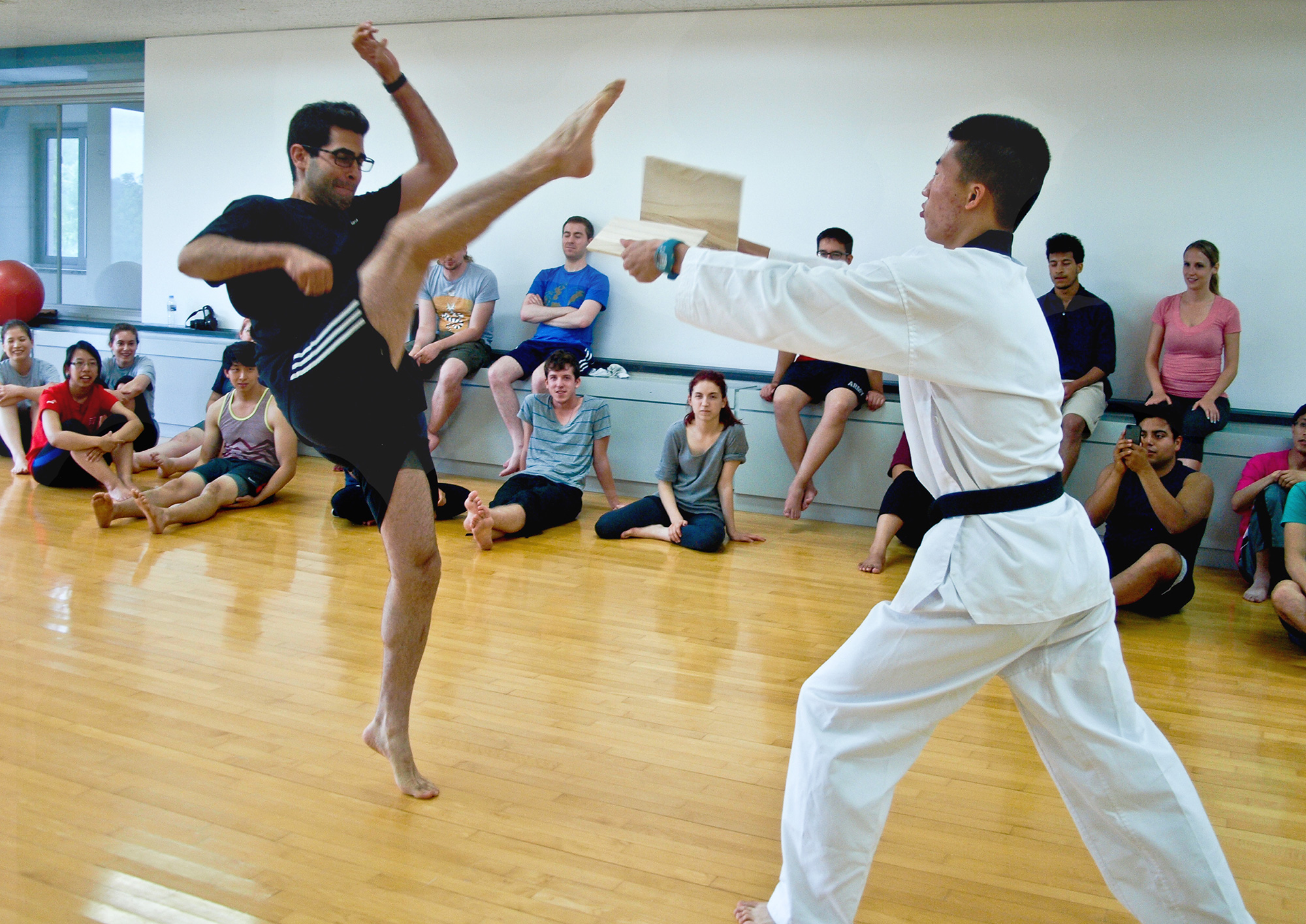
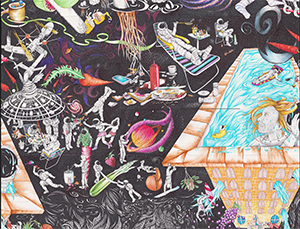



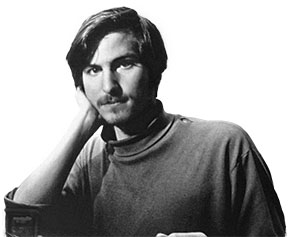
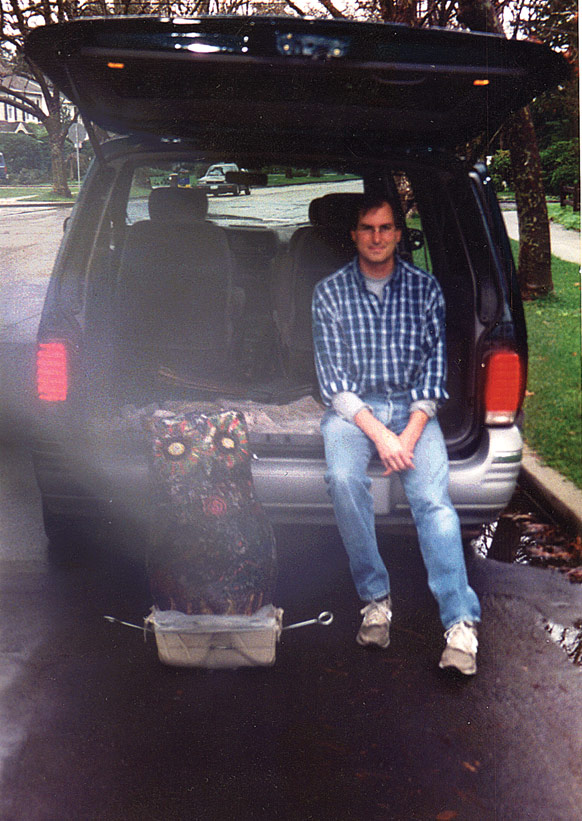
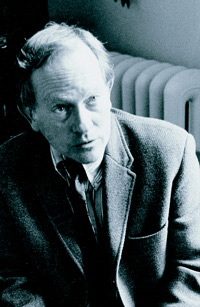




LATEST COMMENTS
steve-jobs-1976 I knew Steve Jobs when he was on the second floor of Quincy. (Fall...
Utnapishtim - 2 weeks ago
Prof. Mason Drukman [political science 1964–70] This is gold, pure gold. God bless, Prof. Drukman.
puredog - 1 month ago
virginia-davis-1965 Such a good friend & compatriot in the day of Satyricon...
czarchasm - 4 months ago
John Peara Baba 1990 John died of a broken heart from losing his mom and then his...
kodachrome - 7 months ago
Carol Sawyer 1962 Who wrote this obit? I'm writing something about Carol Sawyer...
MsLaurie Pepper - 8 months ago
William W. Wissman MAT 1969 ...and THREE sisters. Sabra, the oldest, Mary, the middle, and...
riclf - 10 months ago